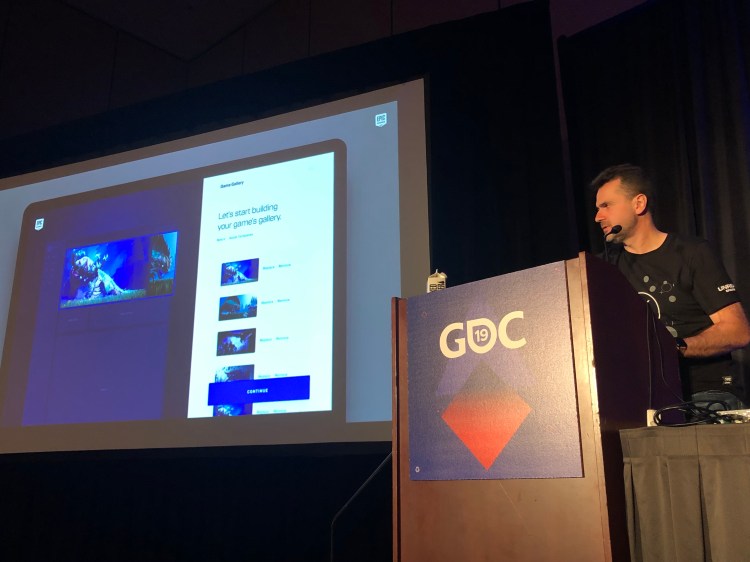Another developer, who was clearly frustrated at the stalled development of the Unreal Tournament reboot, asked if Epic Games investor Tencent had anything to do with that decision. The Chinese conglomerate (and frequent investor of gaming companies) owns about 40 percent of Epic.
“Tencent has zero input into our business. They do not talk to us about what we’re doing. They don’t suggest what we should be doing. They don’t make any decisions for us. They’re not in our building,” said Allison. “Everything we do is with our team, and the final point of conversation when it goes up to the top is Tim [Sweeney], and Tim does not take any orders from Tencent, believe me.”
Just to make sure, the same developer asked if Tencent has anything to do with the Epic Games Store. The answer, once again, was no.
The exclusive-spree won’t last forever
One way the Epic Games Store has been building momentum is by signing exclusive deals with some of the top developers in the world, such as Remedy (Control), Supergiant Games (the early access RPG Hades), and Ubisoft (The Division 2). But for some developers, the exclusivity has become a concern — after all, it’s in their best interests to release their games on as many platforms as possible. So someone in the audience asked Epic if they plan to rely on exclusive games in the long term to lure people in, or if that’ll eventually subside.
Allison noted that while he doesn’t think they’ll be signing exclusive deals forever, it’s something they’ll keep doing for the foreseeable future.
“We’re already seeing the ecosystem come to life from a sales and user perspective. [We’d] probably do it for a while because it’s about pushing the business model and helping people thrive,” he said. “But at some point, hopefully people just come [to the store], or the industry moves down and matches us. … At some point, we could go to zero, or we could go to very, very few major exclusives in any given year. We’ll definitely not be doing them at the scale we’re doing now, not for an extended period of time.”

Above: The Aurora train is your ticket to the east in Metro Exodus.
Responding to the Metro Exodus backlash
One PC exclusive in particular, the dystopian shooter Metro Exodus, rubbed the community the wrong way. Metro Exodus jumped to the Epic Games Store just weeks before its February launch, angering people who’d already preordered or planned to purchase the game on Steam. While it did well, with Epic saying sales were 2.5 times better than what the previous game (Metro Last Light) did on Steam in 2013, the last-minute move was a rare and awkward misstep for the fledging storefront.
A developer asked how they’d handle something like this going forward.
“We knew there was gonna be some pushback there. It wasn’t an ideal solution. We definitely want to avoid that in the future,” said head of business development Joe Kreiner.
Allison agreed, and promised to work with gaming companies to make sure these important decisions happen much earlier in the process.
“We’d been talking to [Metro Exodus publisher Deep Silver] for a number of months. They made some decisions on their end — this is not a throw-them-under-the-bus thing — it’s just the timing of when that came together and what was important to their business,” he said. “We decided to do it together. We both knew there was the potential for the thing that happened in terms of communication.
“It felt way worse and was bigger than we thought. We spent time talking about it, [that] we’d never do this again in this way.”

